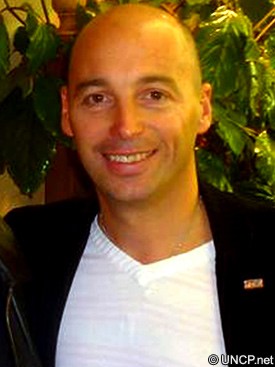States riders are not bandits, WADA proposal would be resisted by riders
 The French Union Nationale des Cyclistes Professionnels (UNCP) has said that it opposes any suggestion of night-time testing, as advocated recently by WADA’s independent observer report for the Tour de France.
The French Union Nationale des Cyclistes Professionnels (UNCP) has said that it opposes any suggestion of night-time testing, as advocated recently by WADA’s independent observer report for the Tour de France.
The proposal, which would see anti-doping controllers having the power to request tests outside the normal hours, is one which the Union president Pascal Chanteur has rejected.
“Riders are fed up of being considered bandits, with a presumption of guilt,” he told AFP, according to L’Equipe. “They are above all men, not just guinea pigs.”
The proposal, which is intended to stamp out the practice of micro-dosing EPO and other substances by some riders, has met with a mixed response. Italian professionals Vincenzo Nibali, Filippo Pozzato and Giovanni Visconti have rejected the idea, while Mark Cavendish said that he supported it.
“We have to do everything to eliminate doping in sports,” Cavendish told Radsport News. “Of course it would affect sleep and influence the competitions. But as long as everyone is treated the same way I would not have a problem with it.”
The UNCP doesn’t agree with the Briton. “In reaffirming our agreement for anti-doping policy, we also ask you to leave us a little peace, if only at night to sleep!” said Chanteur.
“If WADA (World Anti Doping Agency) was to persevere in that intention of spot checks at night, it would encounter resistance from competitors. There is a limit to everything, especially indecency.”
He said that he was opposed to what he termed a “more aggressive approach,” stating that riders already “submit themselves to a demanding medical monitoring, a biological passport, unannounced inspections, which means they must be available to be located at any moment for possible controls.”
The WADA recommendation is likely to lead to plenty of debate. Garmin-Transitions manager Jonathan Vaughters recently told VeloNation that he believed occasional controls would be worth introducing. He acknowledged that they disturb sleep but, providing such tests are not abused, said they had a part to play.